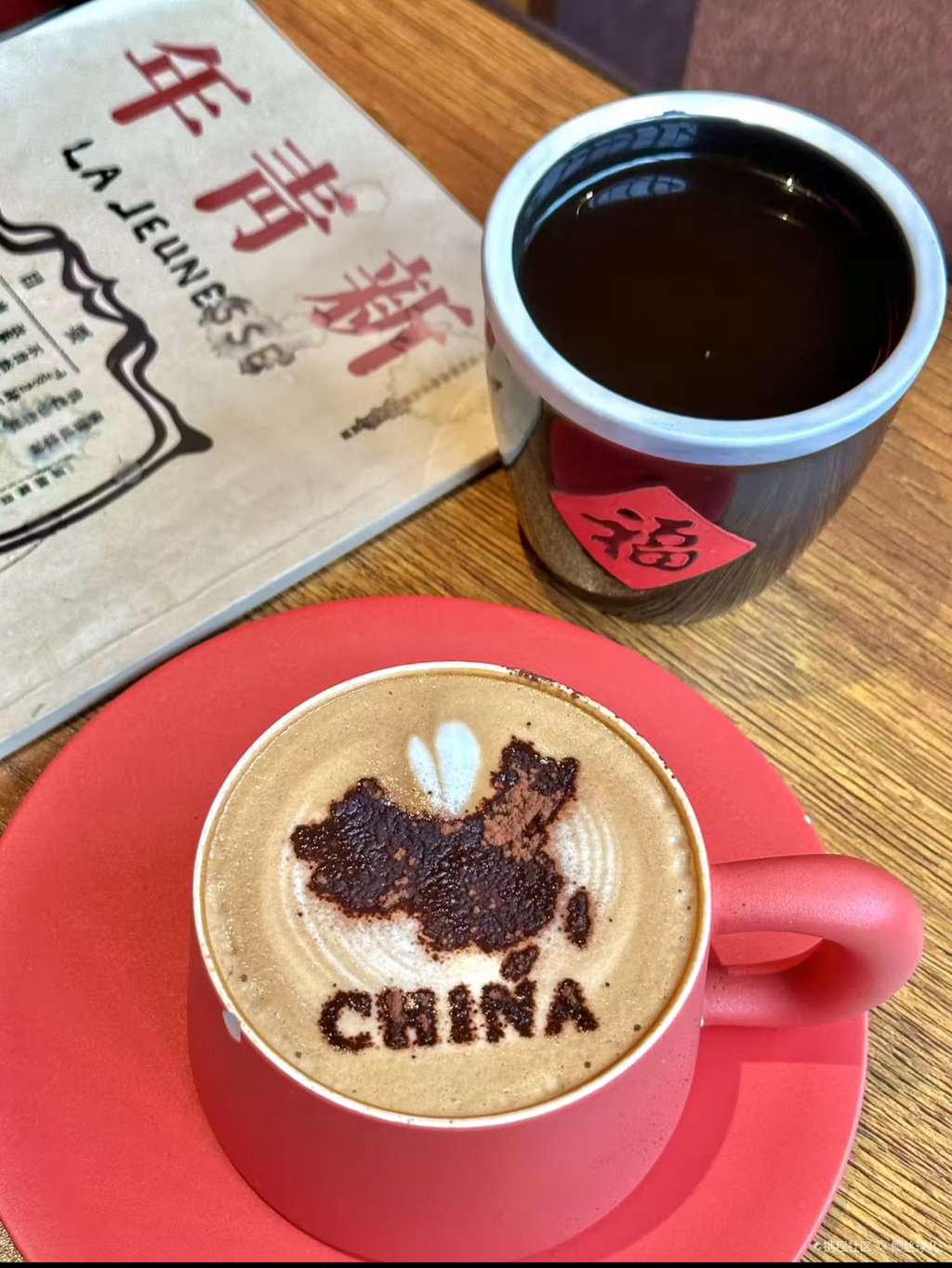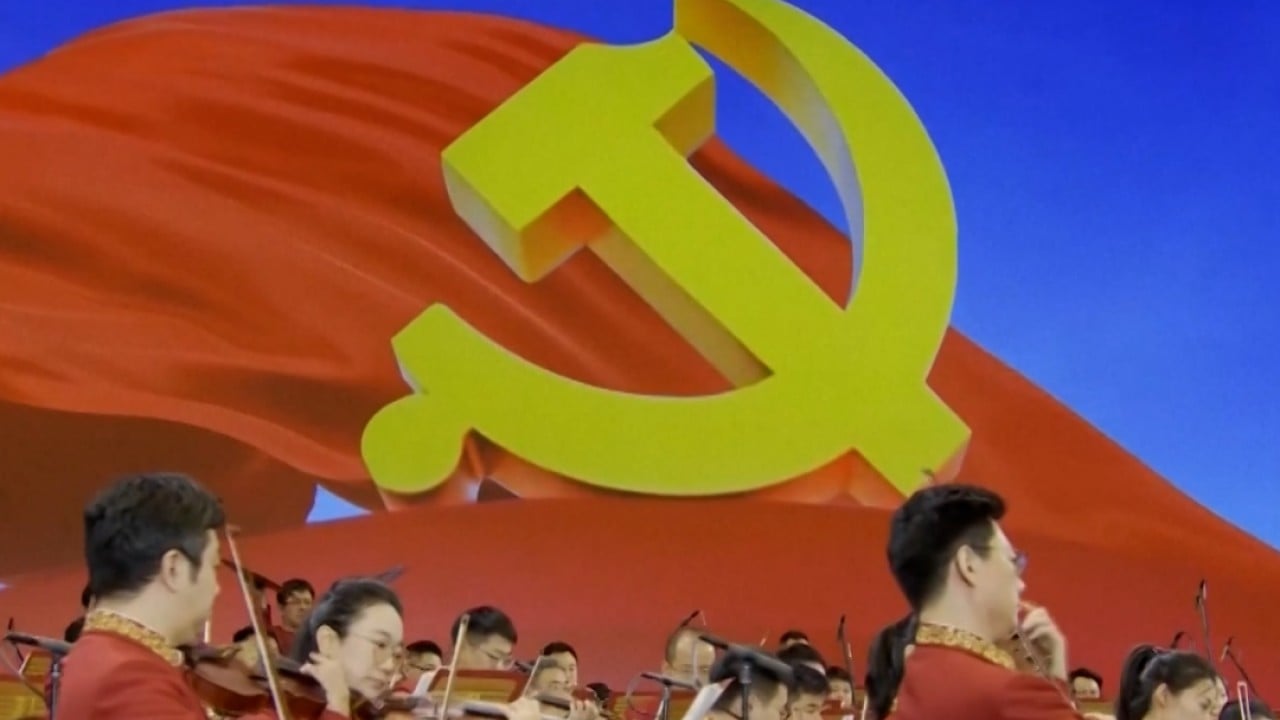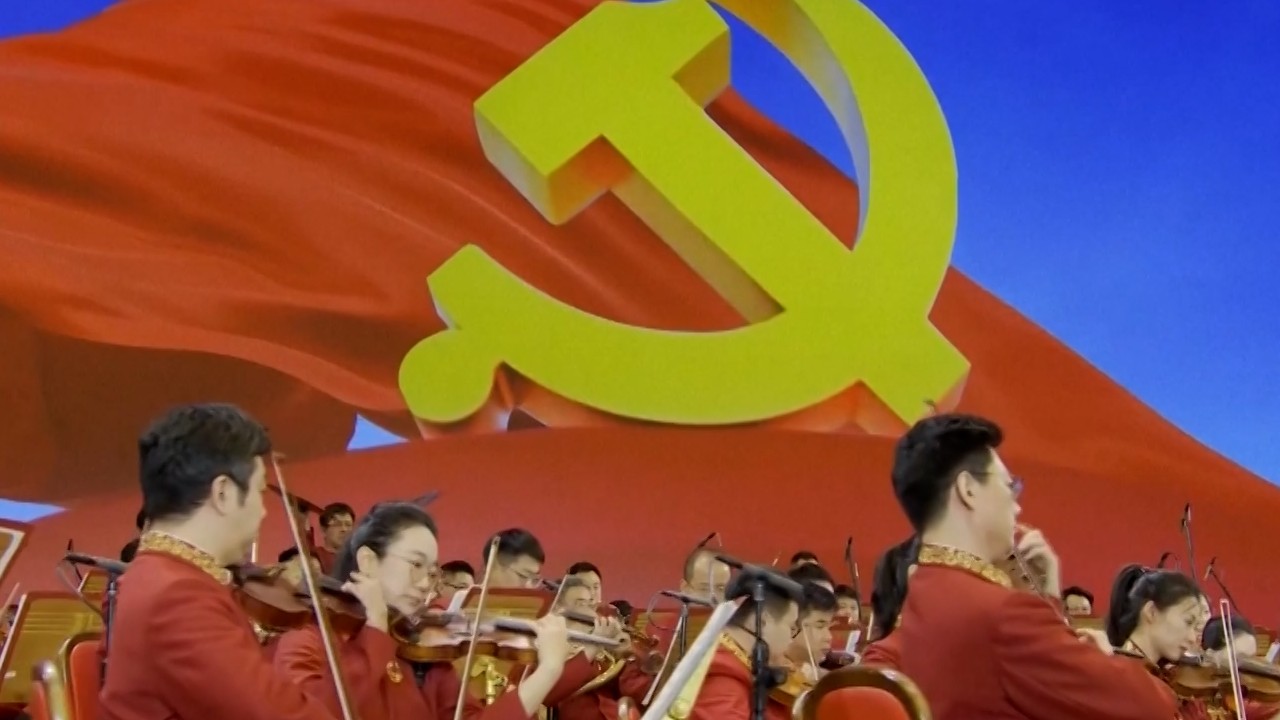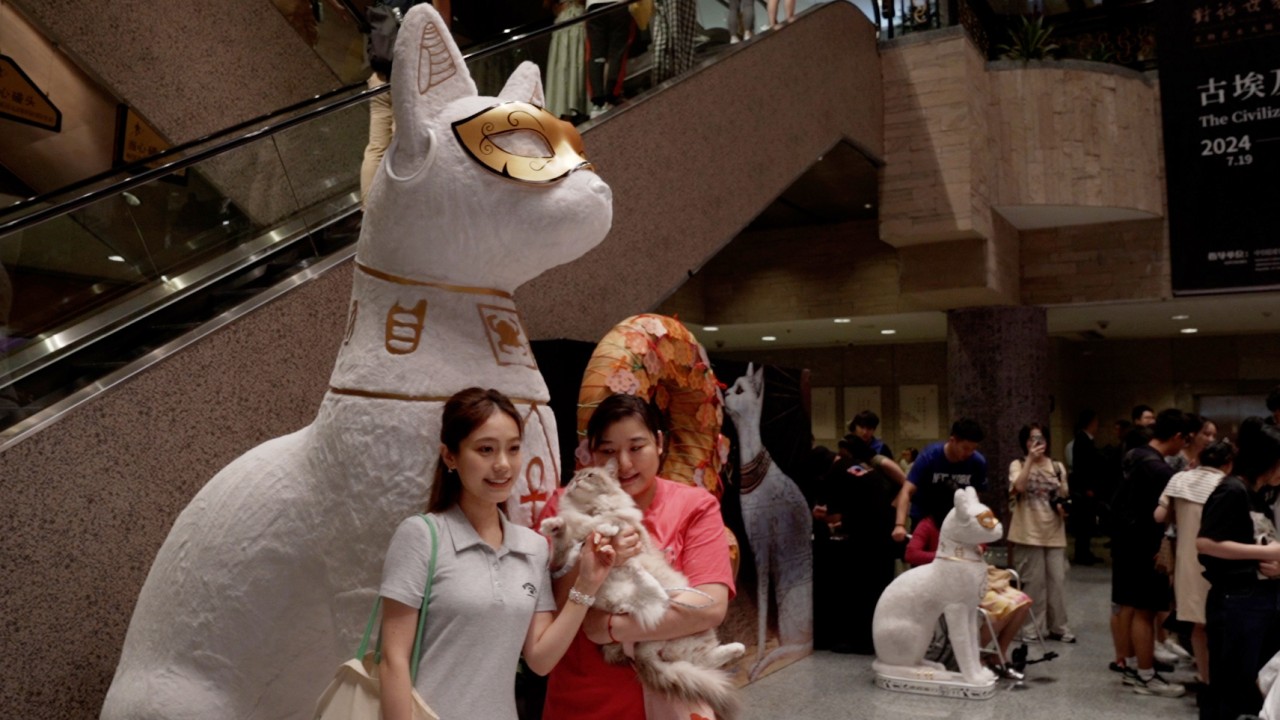Xintiandi used to be the name of a subway station in downtown Shanghai known for its chic eateries and boutiques.
Three years ago, it was renamed the Site of the First National Congress of the Chinese Communist Party, Xintiandi Station, to mark the party’s centenary. At the same time, an exhibition titled “Epoch-making beginnings: Founding of the Communist Party of China” opened next to the shopping mecca and has run since.
Wang Xinning, a student at Fudan University in Shanghai who visited the exhibition before the summer holiday, said she was impressed by the stories of party martyrs who sacrificed their lives at a young age.
“[Their stories] contrasted sharply with my life, and made me rethink my purpose of joining the Communist Party,” she said.
Patriotism-themed exhibitions packed with youngsters in red scarves and college students have become a common sight in recent years, particularly during public holidays.
While it is no secret that many young people have struggled to find work as China’s economic growth slowed, patriotic education, which emphasises altruism and loyalty to the Communist Party, has gathered pace alongside a rise in nationalism in the country.
The promulgation in January of the patriotic education law – which spells out the responsibilities of everyone, from children to adults, and schools to families – added fuel to the movement.
The effectiveness of the patriotism drive is difficult to measure, but at the Red Building on the Peking University campus, a young student of the School of Marxism at Beijing Normal University said she felt “fired up” when she visited the historic party site that is often regarded as the cradle of the student-led May Fourth Movement of 1919.
The Red Building, a four-storey red brick house, reopened in 2021 to serve as a memorial hall of the early revolutionary activities of the Communist Party.
“I feel like I am in the company of those students [in 1919], and I am motivated to relearn Marxism and theories about the Communist Party,” she said.
“With examinations coming up, I hope I may find some luck here,” she added.
Some young visitors said the historic remnants were not all dull and boring. Wang of Fudan University adored a cartoon souvenir of Lu Xun, a towering figure of modern Chinese literature revered by the Communist Party.
“This is a present from a friend who visited the former residence of Lu Xun,” Wang said. “Young people love [the memorabilia] and feel connected because these designs plant the historical figures in people’s hearts in a more relaxed way.”
Enthusiasm among young people was partly galvanised by a popular TV series about Communist Party heroes that aired in 2021.
The Age of Awakening, a state-produced TV drama chronicling the May Fourth Movement and the founding of the Communist Party, inspired a fad of merchandise featuring celebrities and icons made popular by the programme, although the popularity of these souvenirs may have started to fade recently compared to three years ago.
But there were also visitors to these exhibitions who came out of obligation rather than passion.
At the Communist Party Museum, which is near Beijing Olympic Park, some parents said they came to help their children fulfil school requirements. One mother said her son needed to complete a worksheet about the Red Army and write the story of a Red Army soldier.
“These tasks are troublesome, but they are requirements from the school. How can we refuse to do that?” she said.
An undergraduate student at the Red Building said the visit was just “a waste of time”.
“It’s so boring and all propaganda, and there’s nothing new in any of these [exhibition] rooms,” he said. “I could have spent my time better studying for the postgraduate entrance examination.
“We waste too much time in ideological and political courses – even when we are on summer holidays.”

Zeng Jingjing, a graduate of education at Beijing Normal University, said while today’s circumstances were different, young people could still gain insight from the revolutionary generations.
“What we can learn from our predecessors is their spirit,” Zeng said after visiting a patriotic education site in Shanghai.
Yuan Bo, who has completed her graduate studies and is working at a start-up in Shanghai, said she was often more interested in observing other visitors’ reactions rather than the exhibits.
On a humid and hot Sunday afternoon in July, she visited the Sihang Warehouse Memorial of War of Resistance Against Japanese Aggression in central Shanghai, which houses an exhibition documenting a battle by Chinese soldiers against the invading Japanese army that started in 1937.

Yuan said she was indifferent about the memorial since the exhibition was similar to other patriotic education sites she had visited.
“We are told how we should feel about history and the motherland, instead of having our own thoughts and ideas. We won [the war against Japan’s invasion] because of all the great work by our country and our people,” she said.
Watching small children running and shouting “defeat the Japanese” at the memorial, Yuan said she was like them when she was their age but had since experienced a shift.
“Before I could form my own values, I was often fed with different ideas by others, and it’s difficult not to be influenced by all those anti-Japanese films and TV series.
“But I don’t want to blindly follow others now.”
She said while patriotism was important, it should not be at the expense of independent thinking.
“Patriotic education is indeed necessary, but there should be room for discussion,” Yuan said. “Promoting peace may be more important than promoting patriotism.”
Jonathan Sullivan, an associate professor specialising in Chinese politics at the University of Nottingham, said that in China, “control of representations of the past represents an ideological battleground”.
Just outside the exhibition, a cafeteria named The People’s Cafe continues the patriotic message in its decor, which features red stars and other Communist Party icons. A stereo plays patriotic songs on a loop, and revolutionary posters on the walls carry slogans such as “Taiwan independence is a dead end”.
Beijing sees Taiwan as part of China to be reunited by force if necessary. Most countries, including the US, do not recognise Taiwan as an independent state, but Washington is opposed to any attempt to take the self-governed island by force and is committed to supplying it with weapons.

The cafe sells two types of cappuccino – one with foam in the shape of China’s territory and the other topped with foam in the shape of the word “China” in Chinese characters.
Its pineapple-flavoured latte, a new introduction in July, is decorated with the shape of Taiwan island and the words “must be returned” on top.
“I felt I was living in magical realism,” said Yuan, watching the chocolate foam dwindling from the cappuccino she ordered.




